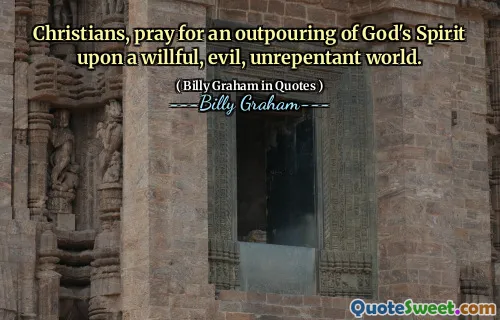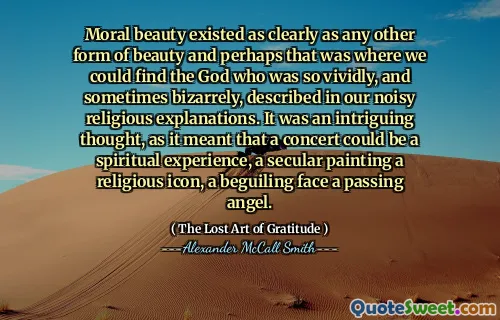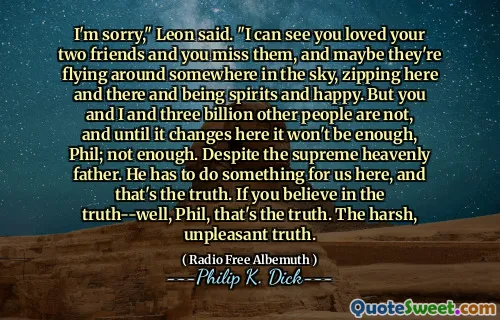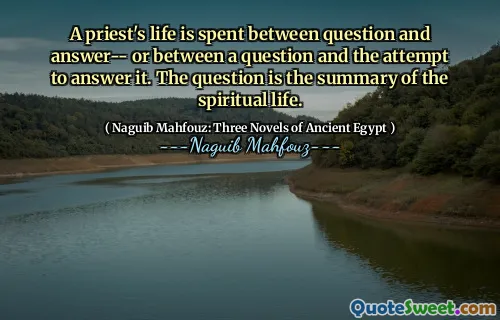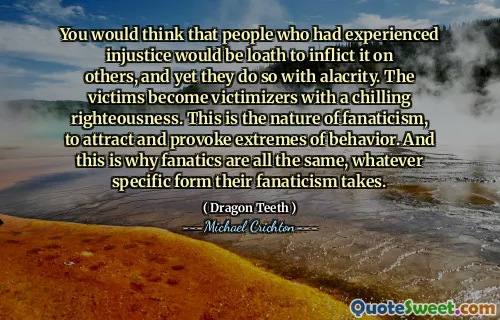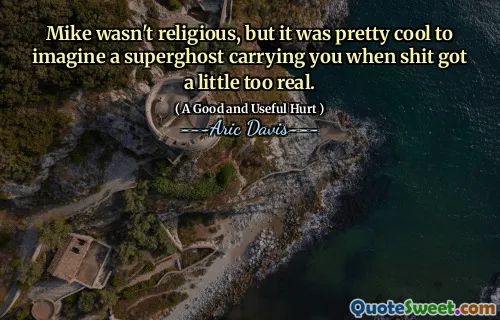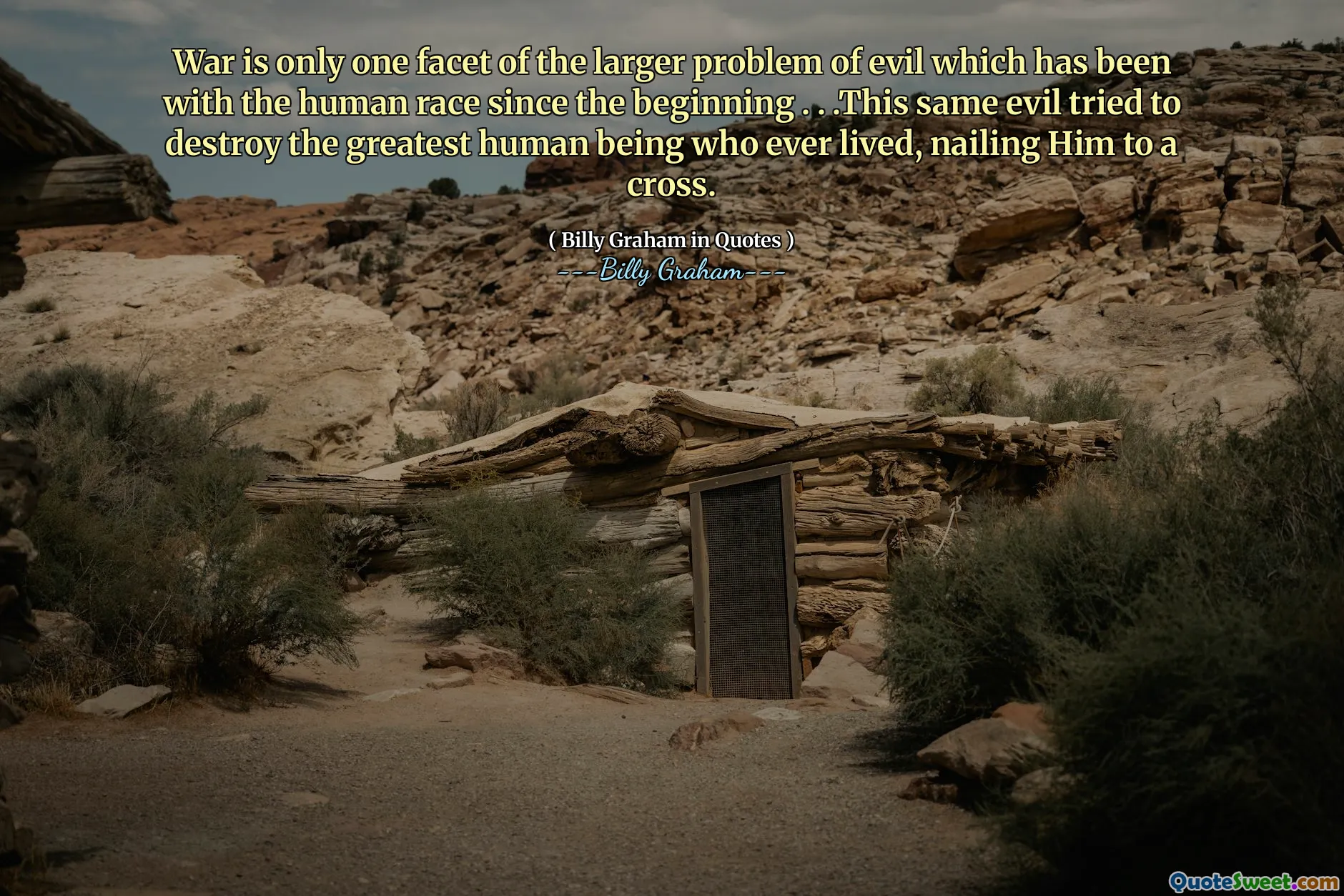
War is only one facet of the larger problem of evil which has been with the human race since the beginning . . .This same evil tried to destroy the greatest human being who ever lived, nailing Him to a cross.
This quote vividly highlights the pervasive presence of evil throughout human history. It suggests that war, often seen as the most destructive manifestation of human conflict, is merely a surface expression of a deeper spiritual struggle that has persisted since the dawn of humanity. The reference to the cross emphasizes the profound nature of this evil, pointing to the suffering and injustice faced by the greatest human being—presumably Jesus Christ—at the hands of evil forces. It invites reflection on the human condition, where violence and moral darkness are intertwined with the fundamental questions of good and evil, faith, and the enduring hope for redemption. Recognizing that evil isn't confined solely to wars or violent acts but is a persistent undercurrent in our moral and spiritual lives encourages us to confront these issues at their roots rather than only addressing their destructive outcomes. It also underscores the Christian belief that even in the face of evil and suffering, there is profound significance and hope through sacrifice and salvation. Understanding this quote calls for a deeper awareness of the spiritual struggle that influences human history and individual lives, urging us to seek compassion and righteousness amidst the chaos and darkness that often seem overwhelming.

